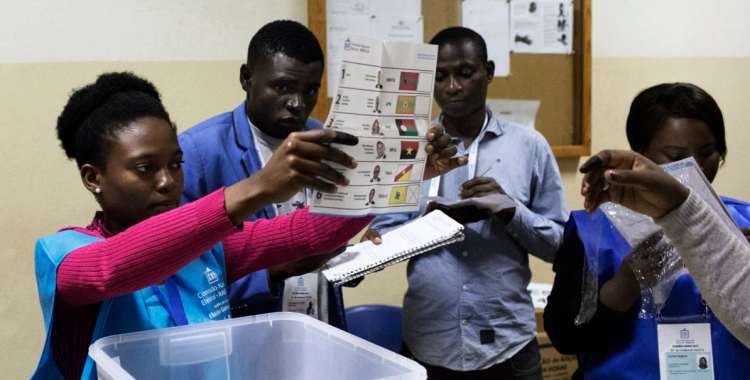Luís Jimbo was speaking to the Lusa agency about the proposed Law on Polls and Opinion Surveys, which will, this Wednesday, go to the final global vote in the National Assembly.
The proposed law presents as main controversial points the prohibition of carrying out polls during the electoral campaign period, that before the publication of results, a report is presented to the Ministry responsible for Social Communication and even that companies have a minimum share capital of 15 million kwanzas, as a way of guaranteeing the repair of possible damages caused.
"It doesn't make sense. What it boils down to is that the political parties with seats in parliament and the illustrious deputies are creating a new type of polls, which is one of the atypical things that only exist in Angola. parallels and polls do not apply to measure and compare electoral results", he said.
For the also coordinator of the Angolan Electoral Observatory, this confusion is due to "ignorance of technical and scientific knowledge and practice of how these things are done".
According to Luís Jimbo, "a marketing tool, which is done at any time and at any time, which are the polls" is being confused.
"And worse, the whole argument is being used as if a poll were a political instrument to measure political issues. No! I hope they didn't go so far as to designate a law on electoral polls, because that would be absurd. Poll is poll , a tool", he stressed.
The coordinator of the Angolan Electoral Observatory emphasizes that there is an absence of parallel counting in the proposed law, which cannot prevent candidates and election observers from carrying out this inquiry "which is the true mechanism for comparing with the official results".
"The polling criteria and techniques, its variables do not allow comparison with the electoral result. Just to have a very simple idea, with regard to the parallel count, the source of the data to be sampled is the same source that if you make the final result (...) not a survey, your source of criterion for collecting information is a perception for a target group", he said.
Regarding the obligation for a public entity to validate the disclosure of polls, Luís Jimbo considered it "absurd".
"So, I'm going to do a survey on the trend of my customers in the area of information or restaurant services, will I have to take it to the Government to validate whether this information can be disclosed? This calls into question not only fundamental rights but also the conscience, the right to intellectuality or information, the right to expression", he stressed.
With this demand, Luís Jimbo continued, the Government manifests itself as an entity "that controls what kind of information the citizen can have, this would be absurd".
Luís Jimbo defends that in order to overcome "the fear that people have about polls" it is necessary to increase electoral civic education.
The director of the IASED also does not agree with the minimum social capital required for opening survey companies, "because those who do most surveys are students and universities".
"Polls, surveys, are an instrument that is associated with studies, with academies. How is a university, a student, doing their research, whether for undergraduate or graduate studies, they use this survey instrument. sense", he criticized.
Regarding the controversy surrounding the ban on polling during the electoral campaign, 30 days before the vote, Luís Jimbo said that this issue is already in the electoral law, which has been happening since the 2008 elections.







